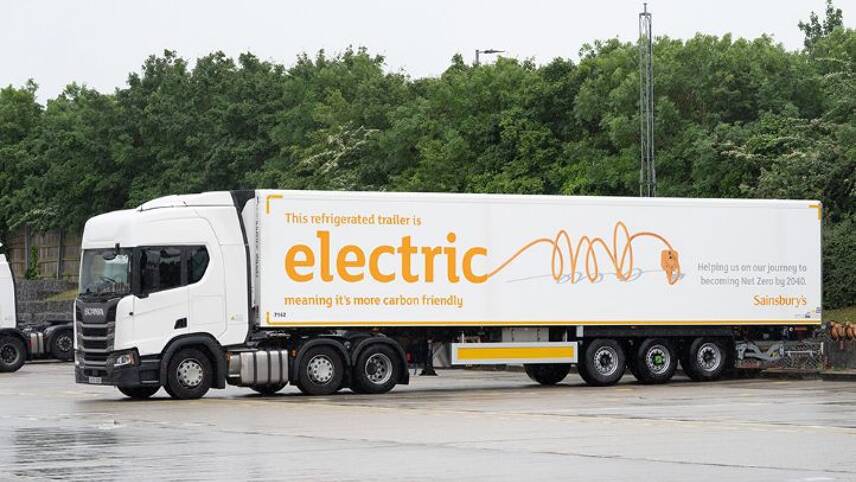Register for free and continue reading
Join our growing army of changemakers and get unlimited access to our premium content

Image: Sainsbury's
Starting with DHL; the logistics giant has this week announced plans to add 270 new pure electric vans to its UK fleet by September.
The company has chosen the Ford E Transit model, which has a range of up to 140 miles and a payload of around 1,000kg. The 4.25-tonne vans will be used to replace diesel vans which are nearing the end of their working life.
Locations including London, Manchester, Leeds, Birmingham, Bristol, Southampton Liverpool, Sheffield, Edinburgh and Glasgow will be served by the new vans, which DHL has invested in following the introduction of 50 electric vans for DHL Express’s fleet in the UK last year.
To support the charging of the vans, DHL has already installed charging infrastructure at 10 of its service centres and is planning to deliver a further 13 “EV-ready” service centres by the end of 2022.
DHL’s parent company, Deutsche Post DHL Group, is aiming for 60% of its last-mile delivery fleet globally to be fully electric by 2030. In the UK, there is a more ambitious goal of ensuring that all UK courier vehicles are electric by 2030. These goals feed into a group-wide net-zero ambition, with a 2050 deadline.
DHL Express’s fleet director Richard Crook said: “We’re thrilled to be sharing another update on our journey to a fully electric fleet. We’re extremely proud of the progress made so far in reducing the environmental impact of our fleet, and this next stage of roll-out is a positive step towards achieving net-zero emissions by 2050”.
The news comes in the same week that DHL signed deals with BP and Neste to source 800 million litres of low-carbon aviation fuel, which it is describing as the largest agreement of its kind to date.
Supermarket smart charging
In related news, Sainsbury’s has confirmed plans to design, develop and deploy smart chargers for its electric refrigerated trailers.
The trailers were first trialled last year and have now been integrated into the supermarket’s lorry fleet. It is estimated that they will mitigate 20 tonnes of emissions annually.
Sainsbury’s is working with Flexible Power Systems to develop the smart chargers, which enable charging when electricity prices are low and the electricity mix is low-carbon. By optimising charging, Sainsbury’s can better manage power demand at its distribution centres.
“Following the announcement of our newly accelerated target to be net-zero in our own operations by 2035, we’re committed to trialling and investing in pioneering technology to enable us to lead the way to a decarbonised future,” said Sainsbury’s director of property and procurement Patrick Dunne.
“We will continue to introduce fully electric refrigerated trailers to our delivery fleet over the next 20 years and are excited to be working with Flexible Power Systems to maximise our carbon savings even further, making our delivery fleet more efficient and better for the planet.”
Through the Transport Decarbonisation Plan, the UK Government has committed to ending the sale of all new petrol and diesel heavy goods vehicles (HGVs) by 2040. As a rule of thumb, the larger a vehicle is, the more challenging it is to electrify, but case studies like Sainsbury’s are beginning to emerge as some fleet operators strive to be early movers.
Sarah George
45-Minute Masterclass: Electrifying your business fleet
Registration is now open for edie’s next free Masterclass, which is taking place on 29 March and will outline how businesses can integrate electric vehicles (EVs) into their fleets as they work to decarbonise.
This 45-minute online Masterclass is hosted in association with E.ON. It will take place at 1pm on Tuesday 29 March and will help businesses to formulate and deliver ambitious plans to reduce emissions from their fleets. Click here for a full agenda and to register.


Please login or Register to leave a comment.